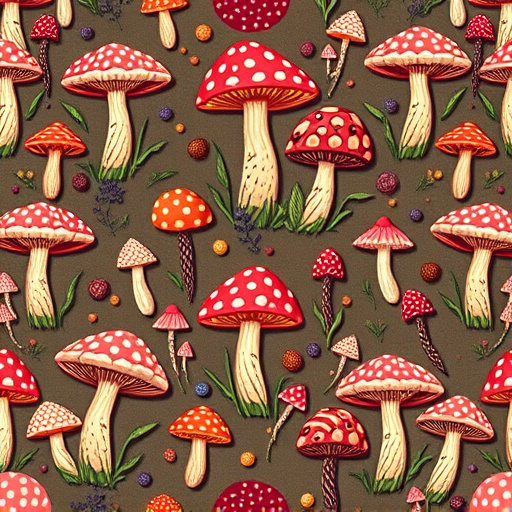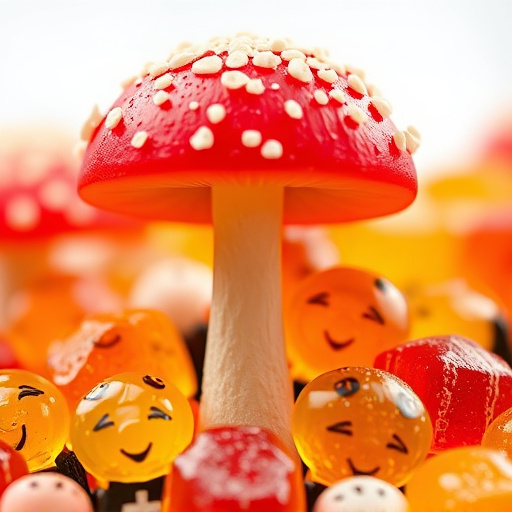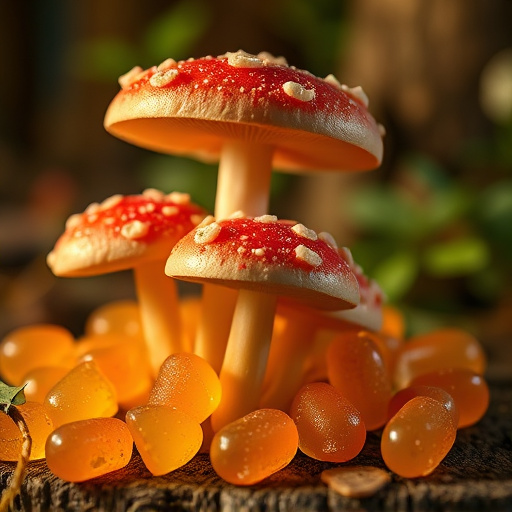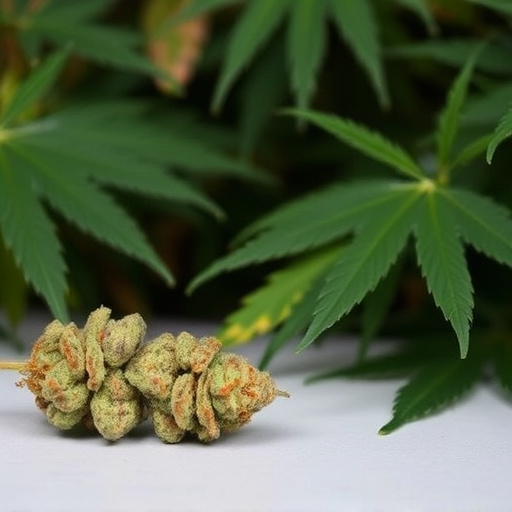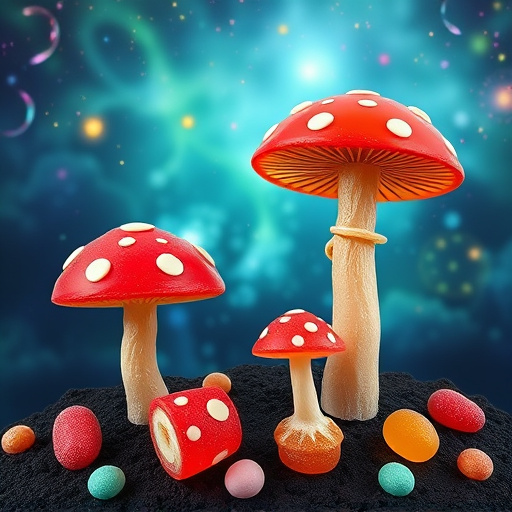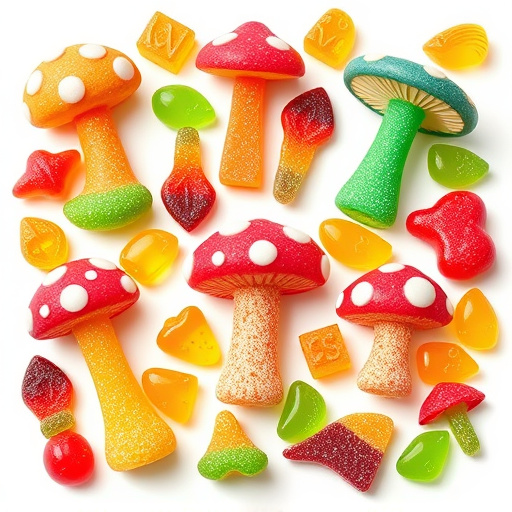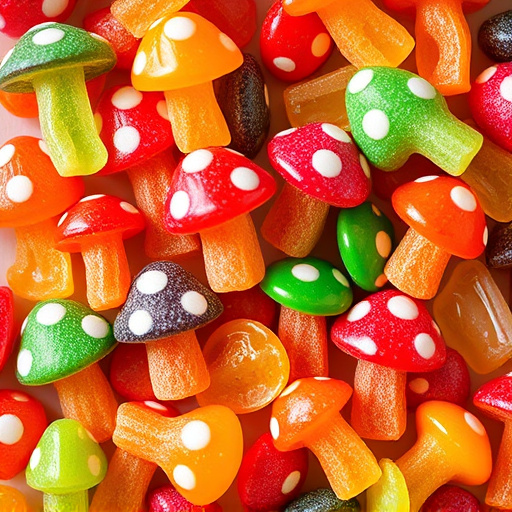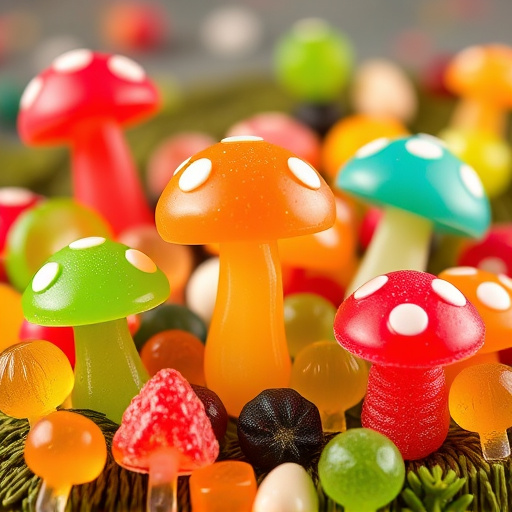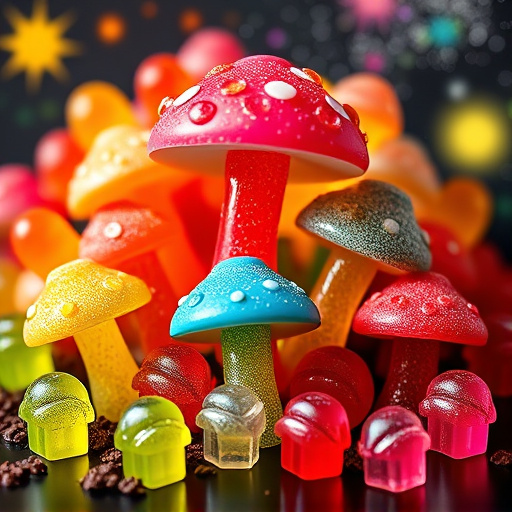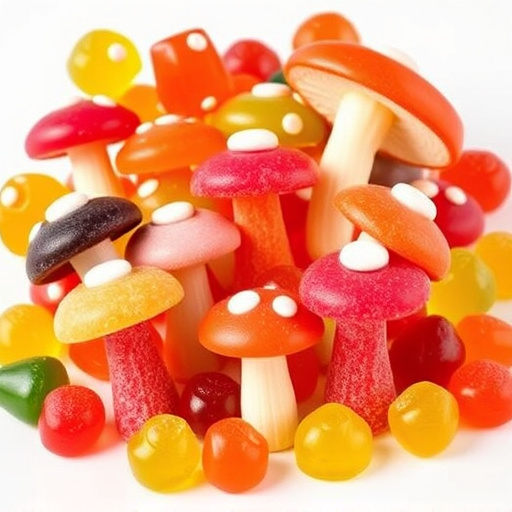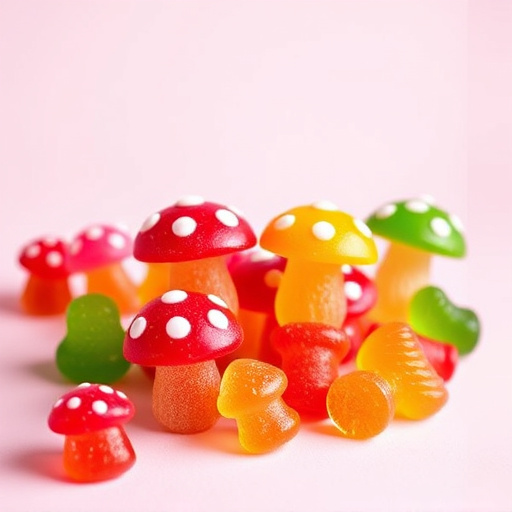Magic mushroom gummies, modern edibles with historical roots, are gaining attention for their potential to enhance brain health through psilocybin and psilocin interaction with serotonin receptors. Recent studies suggest they boost creativity, emotional resilience, and open-mindedness, and stimulate brain plasticity, enabling the formation of new neural pathways. This opens doors for therapeutic uses in mental health treatments like depression, anxiety, and PTSD. However, navigating legalities and safety aspects is crucial due to varying global regulations and potential risks. Medical professionals or psychedelic therapy groups offer guidance on responsible usage and its benefits.
“Magic Mushroom Gummies: Unlocking the Potential of Neuroplasticity?
In recent years, the world of mental health and wellness has seen a surge in interest surrounding magic mushrooms and their therapeutic effects. As research delves deeper, one innovative form catching attention is the emergence of Magic Mushroom Gummies for sale. This article explores the science behind these edible treats and their potential impact on brain functionality, particularly focusing on enhanced neuroplasticity. We’ll navigate the legal landscape and safety considerations while shedding light on the promising applications of this unique approach.”
- Unraveling the Science Behind Magic Mushroom Gummies and Their Impact on Brain Function
- The Benefits of Enhanced Brain Plasticity: Potential Applications and Research Findings
- Navigating Legalities and Safety Considerations in Purchasing Magic Mushroom Gummies for Personal Use
Unraveling the Science Behind Magic Mushroom Gummies and Their Impact on Brain Function
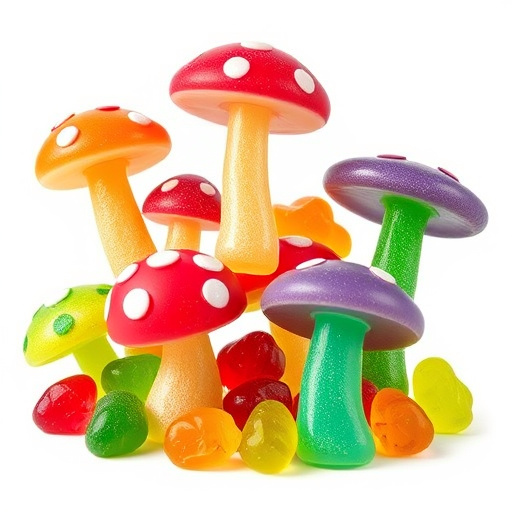
Magic mushroom gummies, a modern twist on traditional psilocybin-containing foods, have sparked curiosity in both recreational users and scientific communities alike. Beyond their psychedelic effects, recent research delves into their potential impact on brain functionality, particularly in relation to brain plasticity.
The active compounds in magic mushrooms, primarily psilocybin and psilocin, interact with specific serotonin receptors in the brain. This interaction triggers a cascade of neurochemical events that enhance neural connectivity and promote cognitive flexibility. Studies suggest that these compounds can increase creativity, open-mindedness, and emotional resilience. Furthermore, the growing body of evidence indicates that magic mushroom gummies might stimulate neuroplasticity, enabling the brain to form new neural pathways and adapt to changing environments. This property holds promise for therapeutic applications in mental health treatments, potentially revolutionizing approaches to conditions like depression, anxiety, and PTSD.
The Benefits of Enhanced Brain Plasticity: Potential Applications and Research Findings

Magic Mushroom Gummies offer more than just a unique consumption method; they potentially unlock profound benefits for brain plasticity. Research suggests that compounds found in magic mushrooms, such as psilocybin, can enhance neural connections and foster neuroplasticity, the brain’s ability to form new pathways and adapt. This has led to exciting applications in various fields. Studies have explored their use in therapy for depression, anxiety, and PTSD, demonstrating significant improvements in mood and mental well-being. Moreover, researchers are investigating their potential in neurodegenerative diseases, where stimulating neuroplasticity could aid in repairing damaged brain tissue.
The ability of Magic Mushroom Gummies to promote brain plasticity opens up new possibilities for cognitive enhancement and therapeutic interventions. As research continues, we may uncover even more applications, expanding our understanding of how these ancient compounds can interact with the complex landscape of the human brain.
Navigating Legalities and Safety Considerations in Purchasing Magic Mushroom Gummies for Personal Use
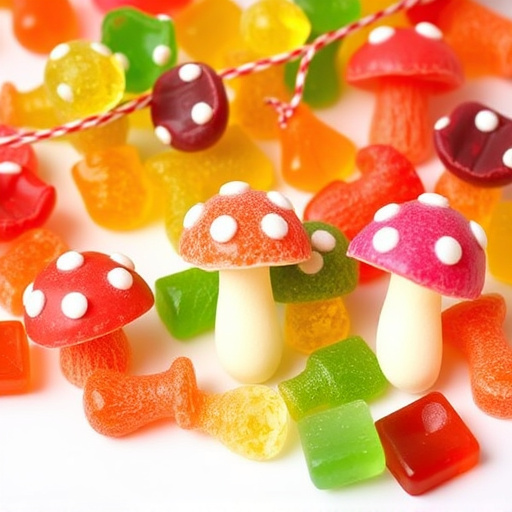
Navigating the legalities and safety aspects of purchasing Magic Mushroom Gummies for personal use is a crucial step, especially considering the unique properties of these substances and their impact on brain plasticity. The legality of psychedelic compounds, including magic mushrooms, varies significantly across different countries and regions, with some areas permitting their use for medicinal or research purposes while others strictly prohibit them. In many places, magical mushroom gummies are classified as controlled substances due to their psilocybin content, which is known to alter consciousness and stimulate neural pathways.
When considering personal use, it’s essential to prioritize safety above all else. Magic mushroom gummies, like any other psychedelic, carry potential risks, including adverse reactions and psychological effects that may be intense for first-time users or those with pre-existing mental health conditions. It is recommended to thoroughly research local laws and consult reliable sources before making a purchase. Additionally, seeking guidance from medical professionals or support groups specializing in psychedelic therapy can offer valuable insights into responsible usage and potential benefits related to brain plasticity.
Magic mushroom gummies, despite their intriguing potential benefits related to brain plasticity, remain a complex topic due to legal restrictions and safety concerns. While scientific research suggests that these compounds may offer therapeutic advantages, responsible consumption and further study are paramount. Understanding the science behind magic mushroom gummies and their impact on the brain is crucial before considering their use for personal well-being. Always prioritize safety and legality when exploring alternative treatments, ensuring you stay informed about local regulations to avoid any legal pitfalls.

